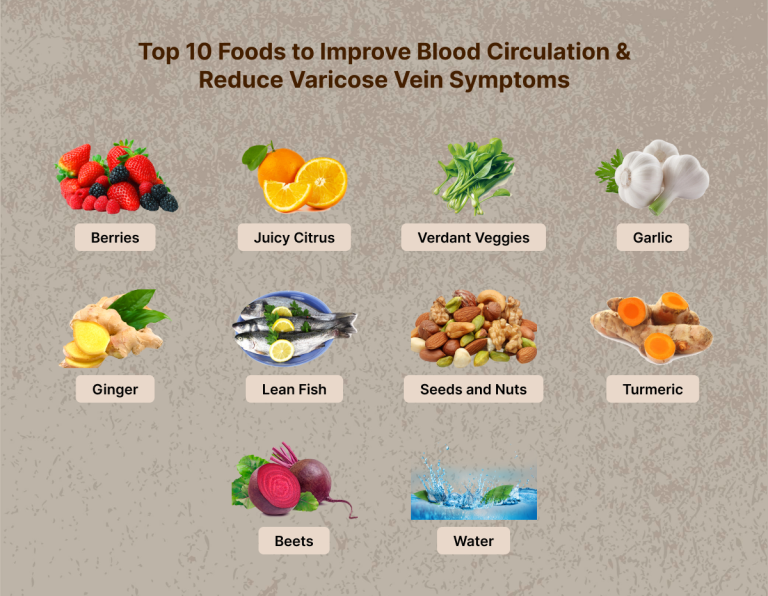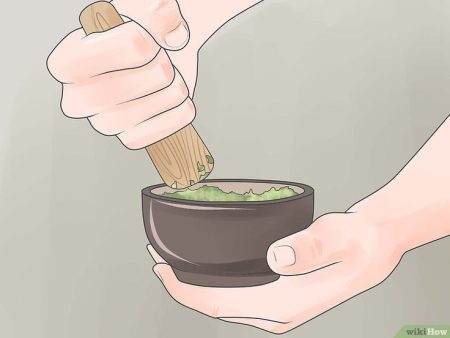Varicose veins in legs are a common condition that affects many people worldwide, causing discomfort, pain, and sometimes more severe health issues. While various treatments are available, one natural approach to managing varicose veins is through diet. Certain foods can improve blood flow, reduce inflammation, and strengthen vein walls, potentially alleviating the symptoms associated with varicose veins.
Understanding Varicose Veins in Legs
Varicose veins occur when veins become enlarged, twisted, and filled with blood. They often appear as swollen, bluish cords running just beneath the surface of the skin. Varicose veins in legs are particularly common because standing and walking upright increase the pressure in the veins of the lower body. Factors such as age, genetics, obesity, and prolonged standing can contribute to the development of varicose veins. Managing this condition often requires a combination of lifestyle changes, medical treatments, and diet modifications.
The Role of Diet in Managing Varicose Veins
Diet plays a significant role in managing varicose veins. A healthy diet can support vascular health, reduce inflammation, and maintain a healthy weight—all factors that contribute to reducing the severity of varicose veins. Consuming specific foods can help improve blood circulation and vein strength, thus minimizing the risk of varicose veins worsening.
Foods to Eat for Reducing Varicose Veins
- High-Fiber Foods
A diet rich in fiber can help reduce the risk of varicose veins by preventing constipation, which can increase pressure on veins in the legs. Straining during bowel movements due to constipation can aggravate varicose veins. Foods high in fiber include whole grains, oats, barley, brown rice, quinoa, lentils, beans, fruits, and vegetables. Incorporating these foods into your diet can help maintain regular bowel movements and reduce the strain on veins.
- Flavonoid-Rich Foods
Flavonoids are a group of antioxidants that can improve blood circulation, reduce blood pressure, and relax blood vessels. These benefits can prevent varicose veins from developing or worsening. Foods rich in flavonoids include citrus fruits like oranges, lemons, and grapefruits, as well as apples, berries, cherries, onions, spinach, and bell peppers. Including a variety of these foods in your daily meals can enhance vascular health.
- Anti-Inflammatory Foods
Inflammation can weaken blood vessel walls, contributing to the formation of varicose veins. Consuming anti-inflammatory foods can help reduce inflammation and strengthen veins. Some anti-inflammatory foods include fatty fish (such as salmon, mackerel, and sardines), nuts, seeds, olive oil, and leafy green vegetables like kale and spinach. These foods contain omega-3 fatty acids and other nutrients that help combat inflammation.
- Foods Rich in Vitamin C and E
Vitamin C is essential for the production of collagen and elastin, which are critical components of strong, healthy blood vessels. Vitamin E, on the other hand, helps prevent blood clots and improves blood flow. Together, these vitamins can strengthen vein walls and reduce the risk of varicose veins. Foods rich in vitamin C include citrus fruits, strawberries, bell peppers, and broccoli, while vitamin E can be found in nuts, seeds, spinach, and avocados.
- Hydrating Foods
Staying hydrated is crucial for maintaining healthy circulation and preventing the thickening of blood, which can put extra pressure on veins. Consuming hydrating foods, such as cucumbers, watermelon, tomatoes, and other water-rich fruits and vegetables, can help keep your body hydrated. Drinking plenty of water throughout the day is also essential for overall vascular health.
- Foods Containing Potassium
Potassium helps reduce water retention in the body, which can decrease the pressure on veins and alleviate the symptoms of varicose veins. Foods high in potassium include bananas, potatoes, avocados, leafy greens, and legumes. Adding these foods to your diet can help regulate fluid balance and reduce the strain on your veins.
Foods to Avoid
While certain foods can help manage varicose veins, others can exacerbate the condition. It is best to avoid foods high in salt, sugar, and unhealthy fats, as these can increase blood pressure, contribute to weight gain, and cause water retention, all of which can worsen varicose veins. Processed foods, sugary snacks, and excessive consumption of red meat should also be limited.
Conclusion
Varicose veins in legs can be managed effectively with a combination of medical treatments, lifestyle changes, and a healthy diet. Incorporating specific foods into your diet can help improve circulation, reduce inflammation, and strengthen vein walls, potentially alleviating symptoms associated with varicose veins. By focusing on a balanced diet rich in fiber, flavonoids, anti-inflammatory foods, vitamins, and potassium, and by staying hydrated, you can take a proactive approach to managing varicose veins naturally.










